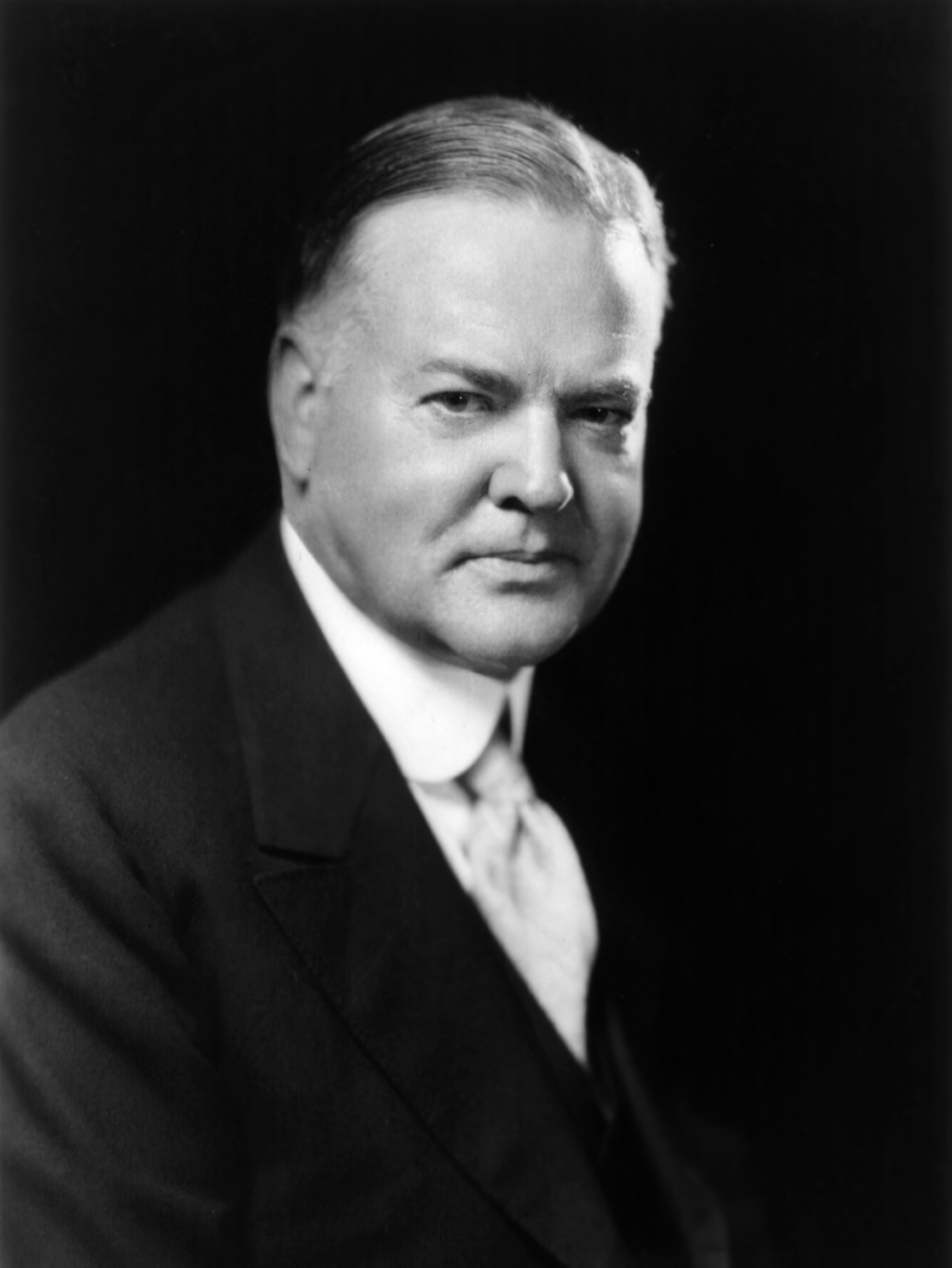Search Results - Hoover, Herbert 1874-1964
Herbert Hoover
 Herbert Clark Hoover (August 10, 1874 – October 20, 1964) was the 31st president of the United States, serving from 1929 to 1933. A wealthy mining engineer before his presidency, Hoover led the wartime Commission for Relief in Belgium and was the director of the U.S. Food Administration, followed by post-war relief of Europe. A member of the Republican Party, he served as the U.S. Secretary of Commerce from 1921 to 1928 before being elected president in 1928. His presidency was dominated by the Great Depression, and his policies and methods to combat it were seen as lackluster. Amid his unpopularity, he decisively lost reelection to Franklin D. Roosevelt in 1932.
Herbert Clark Hoover (August 10, 1874 – October 20, 1964) was the 31st president of the United States, serving from 1929 to 1933. A wealthy mining engineer before his presidency, Hoover led the wartime Commission for Relief in Belgium and was the director of the U.S. Food Administration, followed by post-war relief of Europe. A member of the Republican Party, he served as the U.S. Secretary of Commerce from 1921 to 1928 before being elected president in 1928. His presidency was dominated by the Great Depression, and his policies and methods to combat it were seen as lackluster. Amid his unpopularity, he decisively lost reelection to Franklin D. Roosevelt in 1932.Born to a Quaker family in West Branch, Iowa, Hoover grew up in Oregon. He was one of the first graduates of the new Stanford University in 1895. Hoover took a position with a London-based mining company working in Australia and China. He rapidly became a wealthy mining engineer. In 1914, the outbreak of World War I, he organized and headed the Commission for Relief in Belgium, an international relief organization that provided food to occupied Belgium. When the U.S. entered the war in 1917, President Woodrow Wilson appointed Hoover to lead the Food Administration. He became famous as his country's "food czar". After the war, Hoover led the American Relief Administration, which provided food to the starving millions in Central and Eastern Europe, especially Russia. Hoover's wartime service made him a favorite of many progressives, and he unsuccessfully sought the Republican nomination in the 1920 U.S. presidential election.
Hoover served as the secretary of commerce under Presidents Warren G. Harding and Calvin Coolidge. Hoover was an unusually active and visible Cabinet member, becoming known as "Secretary of Commerce and Under-Secretary of all other departments." He was influential in the development of air travel and radio. Hoover led the federal response to the Great Mississippi Flood of 1927. He won the Republican nomination in the 1928 presidential election and defeated Democratic candidate Al Smith in a landslide. In 1929, Hoover assumed the presidency. However, during his first year in office, the stock market crashed, signaling the onset of the Great Depression, which dominated Hoover's presidency until its end. His response to the depression was widely seen as lackluster and he scapegoated Mexican Americans for the economic crisis. Approximately one million Mexican Americans were forcibly "repatriated" to Mexico in a forced migration campaign known as the Mexican Repatriation even though a majority of them were born in the United States.
In the midst of the Great Depression, he was decisively defeated by Democratic nominee Franklin D. Roosevelt in the 1932 presidential election. Hoover's retirement was over 31 years long, one of the longest presidential retirements. He authored numerous works and became increasingly conservative in retirement. He strongly criticized Roosevelt's foreign policy and the New Deal. In the 1940s and 1950s, public opinion of Hoover improved, largely due to his service in various assignments for Presidents Harry S. Truman and Dwight D. Eisenhower, including chairing the influential Hoover Commission. Critical assessments of his presidency by historians and political scientists generally rank him as a significantly below-average president, although Hoover has received praise for his actions as a humanitarian and public official. Provided by Wikipedia